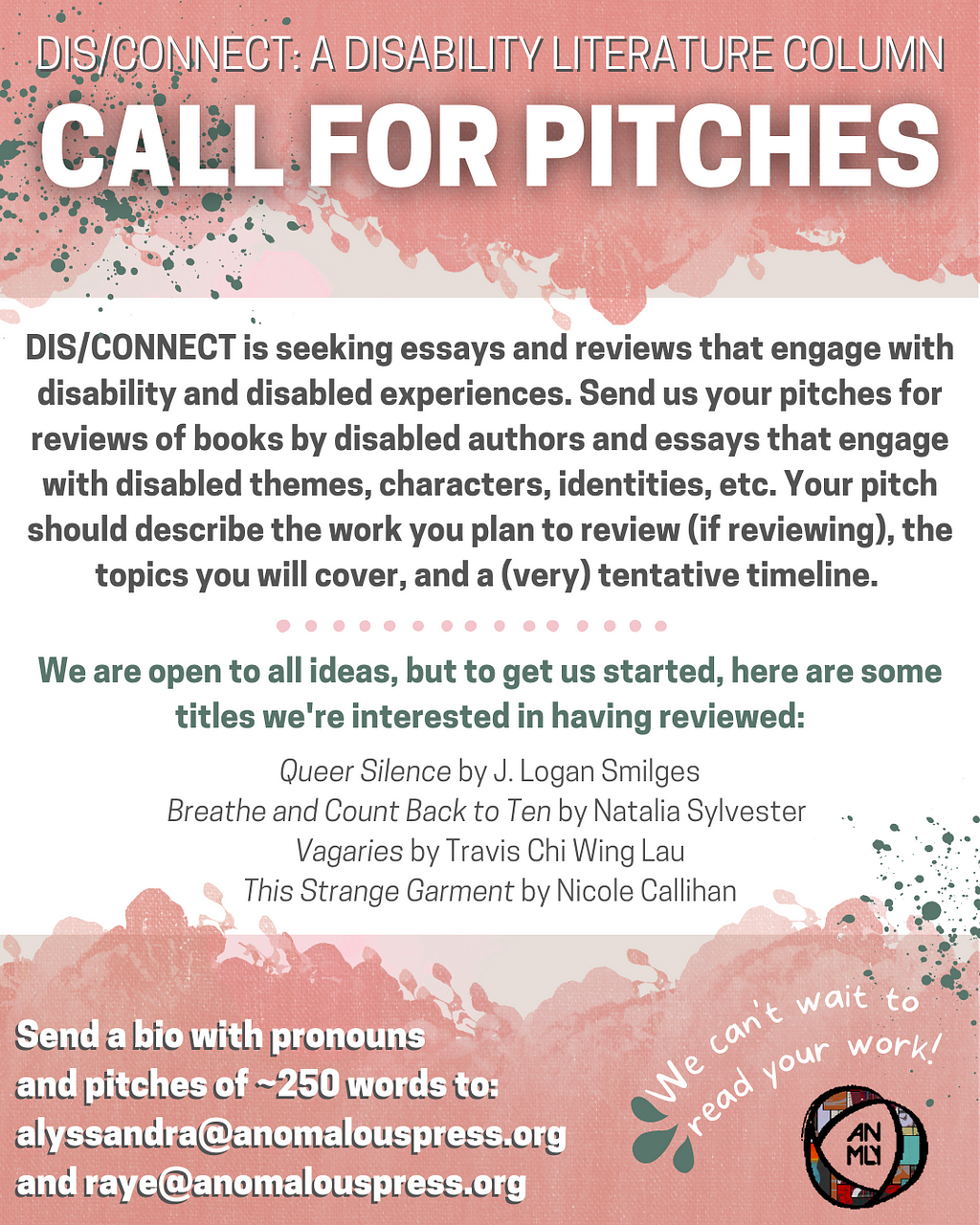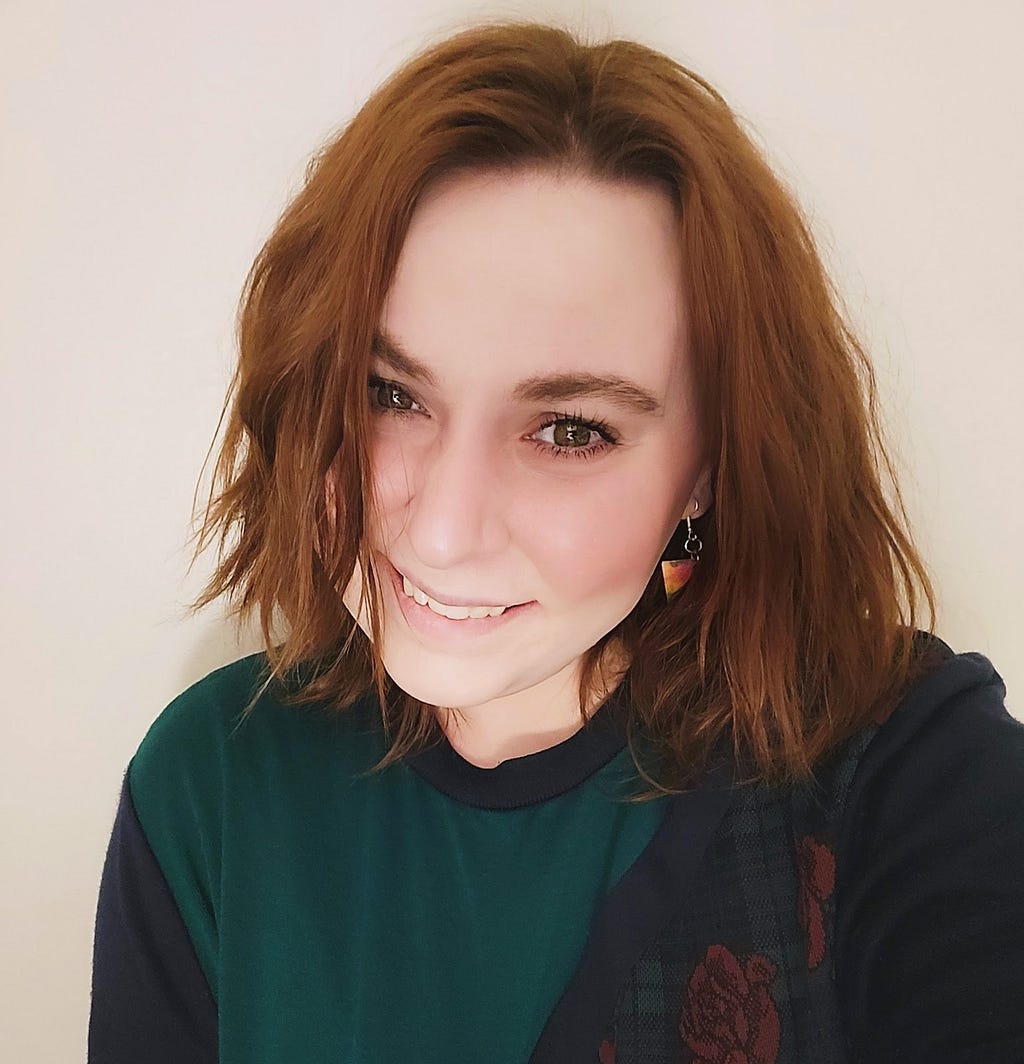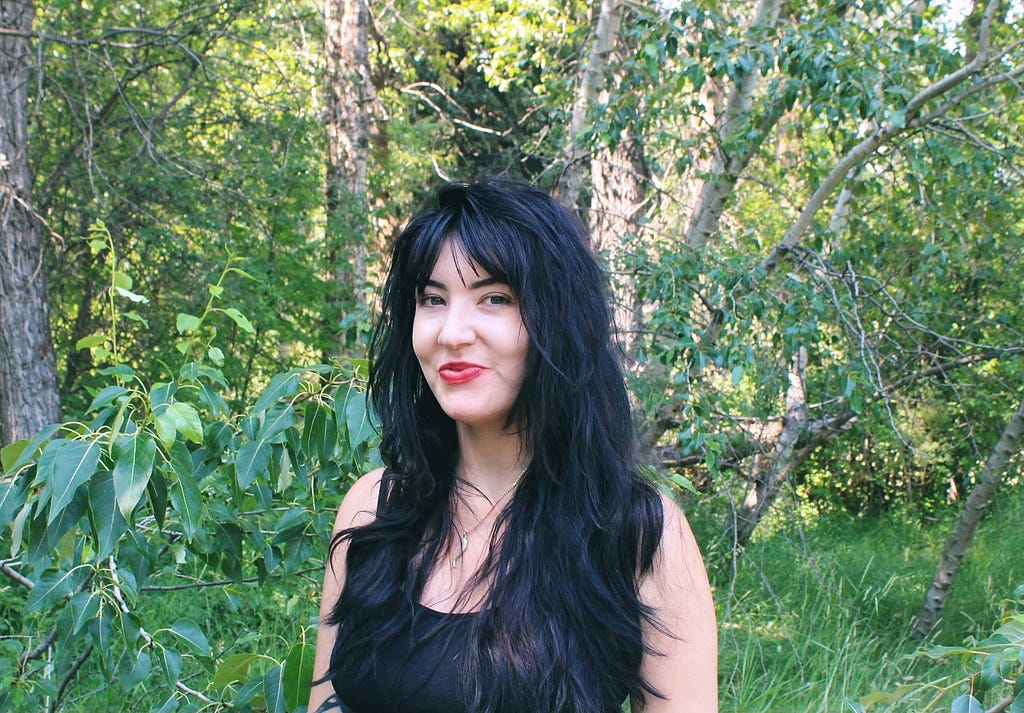
I became connected to Liz Jurkiewicz on social media after just femme & dandy, the LGBTQIA+ fashion literary and arts magazine I founded and I co-edit with Anomaly contributing writer Sarah Sheppeck, published Liz’s photo essay in our cancel & gretel section, a section that publishes writing and other artistic expressions that address access, inclusion, and disability as it relates to queer fashion. I didn’t work with Liz directly on that piece–our incredible cancel & gretel editor, Sky Cubacub, did–but I maintain a closer hand in cancel & gretel’s contributions than in other sections. It’s always been important to me to support all of our editors. With the exception of one issue, we can’t pay our editors (and that exception was only made possible by the support of BANF and Critical Minded), and so it’s important to me I make the work as enjoyable and flexible as possible. I try to offer a little extra support to Sky, who lives and works as a queer disabled designer, and have navigated different chronic illnesses over the time they’ve been a part of our team. That support has included anything from checking in on their email box for recent submissions, reading long pieces in audio messages to limit their screentime (and time they might have to sit upright at a computer desk), and handling the administrative part of finalizing submissions: preparing the contract, asking for headshot and all image descriptions, and so on. Sky was also instrumental in helping just femme & dandy be as accessible as possible and gave us the initial framework for our commitment to access, including insisting that contributors provide us image descriptions, video descriptions, and audio transcripts, making sure our font and design was not only legible but enjoyable to read for a wide variety of readers and viewers. Sky and their own team even wrote the transcripts and video descriptions for some of the videos we accepted early on.
A few months ago, I was seeking a queer disabled reviewer for Petra Kuppers’s ECOSOMA for this site, where I edit our Features & Reviews. Call it a hunch, but I had a feeling that Liz was the perfect person to review this necessary text. I worked closely with Liz, which included cleaning up her voice-enabled text of the review, adding the cover image and image description, and being on call for detailed instructions on how to submit the review through Medium. It was incredibly affirming how appreciative Liz was about accommodating her and working with her through this piece, but I could feel that part of the appreciation was related to the fact that most editors wouldn’t support what she needed in order to bring her voice to the world. It got me thinking, maybe editors don’t actually know what is required to support disabled voices. I also started thinking about this rise of “diversifying” one’s masthead and who gets published in a litmag. If you’re going to say that you advocate and publish “underrepresented” writers, then you have to be willing to do what is needed to actually support them.
So, I hopped on Twitter and posted a thread of some thoughts. They certainly weren’t exhausted, but I wanted to start a conversation. Who knows what’s considered viral these days, but the thread was viewed 40k times, and it certainly was the most engagement a post of mine had ever received. More than that, I received a number of messages and responses from disabled writers who thanked me for the post, and appreciated the work I was trying to do.
This got me thinking about the space I oversee here at Anomaly. Wouldn’t it be great if we had a column dedicated to disabled voices, edited by contemporary disabled writers? I put out a call for an editor for such a column, and I got incredible letters of interest. In fact, more so than for any column I’ve sought editors for in my entire time here as editor. In the end, I narrowed it down to two incredible people: Raye Hendrix and Alyssandra Tobin. It’s the only column that will be run by co-editors but, to quote Raye, having two editors oversee the column is “exactly the kind of thing where having people to lean on is perfect — really a crip praxis in action.”
One more thing about the incredible disabled writers and editors who reached out with interest. Almost every single person wrote about how excited they were for the column, and even if they weren’t the right fit, they couldn’t wait to see who would be selected, and expressed interest in being published. I honestly can’t remember the last time I witnessed such generosity.
So, without further ado, let’s meet our editors of dis/connect:

Raye Hendrix is a writer and photographer from Alabama. Raye is the author of the poetry chapbooks Every Journal is a Plague Journal (Bottlecap Press) and Fire Sermons (Ghost City Press). She is the winner of the 2019 Keene Prize for Literature and Southern Indiana Review’s 2018 Patricia Aakhus Award. Their work has been or will soon be featured in Poetry Daily, American Poetry Review, 32 Poems, Shenandoah, Poet Lore, Cimarron Review, Poetry Northwest, The Adroit Journal, and elsewhere. Raye is the Poetry Editor of Press Pause Press and a PhD candidate at the University of Oregon working in English and Disability Studies. You can find Raye on social media or at rayehendrix.com.
Image description: Raye is a white, femme-presenting person with shoulder-length reddish-brown hair and hazel-green eyes. She is smiling at the camera and wearing rainbow earrings and a colorblocked dark green and navy sweater.

Alyssandra Tobin (she/they) was grown on Boston’s North Shore. She is the author of the chapbook, Put Eyes on Me Not Like a Curse, published by Quarterly West in 2022. Her poems and essays appear in Poetry Northwest, Gigantic Sequins, Grist, Puerto del Sol, The Pinch, and elsewhere. She is a PhD student in English at Oklahoma State University.
Image Description: Alyssandra has long dark hair and wears a black tanktop. She stands in a forest, surrounded by tall grass and trees.
And here’s a current call of submissions/pitches, but feel free to send in anything that relates to disability:
dis/connect seeks to publish essays and reviews that engage with disabled experiences in literary spaces. Send us your pitches for reviews of books by disabled authors and essays that look at disabled themes, characters, identities, or that open up conversations about any of these things.
Here’s a list of books we’re interested in having reviewed:
Queer Silence, J Logan Smilges
Breathe and Count Back to Ten, Natalia Sylvester
Vagaries, Travis Chi Wing Lau
This Strange Garment, Nicole Callihan.
Send pitches of ~250 words detailing the work you want to engage with and how you plan to engage with it. Please include a tentative timeline. We ask that writers turn work around within two months, where possible, but we are willing to work with schedules, life events, etc. Total word count: 750–1000, but also open in that regard, as long as writers consider screen fatigue. Please let us know any other accommodations you need.
Other ideas include addressing disability as represented in media, such as: deafness and neurodiversity in Nancy Drew (the new series on HBO), deafness and signing in The Circle, and revisiting the medication themes in Garden State. But we’re very interested in any disability-centered essays regarding popular media, past and present.
Please send your pitches to: alyssandra@anomalouspress.org and raye@anomalouspress.org.
With love and solidarity,
Addie Tsai, Editor
dis/connect, an introduction was originally published in ANMLY on Medium, where people are continuing the conversation by highlighting and responding to this story.
